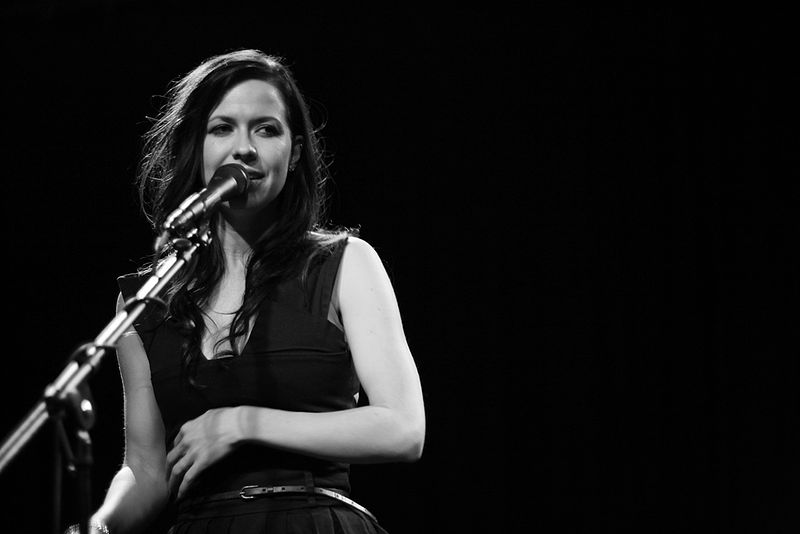Joy Williams and the Psalms
Christina Lee
 Joy Williams’ recent release, VENUS, received lukewarm reviews. Rolling Stone claimed Williams’ voice couldn’t “hold the space" of her orchestration. NPR, not unkindly, labeled the album “Lilith Fair 90s'."
Joy Williams’ recent release, VENUS, received lukewarm reviews. Rolling Stone claimed Williams’ voice couldn’t “hold the space" of her orchestration. NPR, not unkindly, labeled the album “Lilith Fair 90s'."
I can see where they’re coming from. But I’m still into it. It’s music that makes me want to scale a mountain in a glittery sports bra brandishing a fist and shouting “Womanhood!”
Or, you know, fold a giant pile of laundry on a Saturday morning.
I’d rolled about half my mountain of socks when I realized something was off. Spotify was shuffling through all of Joy Williams’ records, and not just VENUS.
That explained the Prozac-fueled ballad (“It’s all good/ask me to explain it and I could/ I’ve got the love of my Lord and I could/it’s all good”) next to the warbled lament (“I’m gonna stand here in the ache / until the levee of my heart breaks”).
On shuffle, Joy Williams’ canon is…unnerving. It’s odd to hear her so giddily sure of herself and then immediately so devastated. It made me think of the Psalms.
Her album covers reflect this tonal shift. Her three early albums all feature a toothy blond in a cute sweater, squinting at the camera through sun-rays. On VENUS? A naked brunette, hunched over and in shadow, face obscured.
Williams herself, of course, is aware of the changes. She left a blossoming career as a Christian artist because of its limiting nature. In 2009, she said, “Everyone sees life through a grid. Part of my grid is faith. When I was in CCM, I was just singing about the grid. I’ve come to a point where I want to sing about what I see through the grid. In CCM, I was always pushed to sing about faith from a “victorious” angle, when I feel like so much of faith is wrestling through questions.”
In Case for the Psalms, N.T. Wright echoes this, saying when we “invent non-Psalmic ‘worship’ based on our own feelings of the moment, we risk being like a spoiled child who, taken to the summit of Table Mountain with the city and the ocean spread out before him, refuses to gaze at the view because he is playing with his Game Boy.”
Clearly, Williams knows her early records would benefit from a more emotional honesty. I’d argue, however, that she might have “filled that space” better in VENUS if she’d balanced those emotions with one less lament.
Balance is hard. Just a glance at Williams’ album covers show they are packaged to sell an image. Shorthand for “Christian artist” seems to be is soft-focus grinning blond who will breathily assure you that “it’s all good.”
This is a frustrating image to every Christian woman I know, but especially to artists. It’s natural to want distance from that. But I also know (from experience) that if my art is only created as a reaction against that “it’s all good” girl, I quickly veers into melodrama and navel-gazing.
Wright reminds us that the Psalms encourage us not only to write out of the “truthful, sincere outpourings of who and what we are” but also to “trust that we will be remade". This Advent, I’ll be reading them through again as a reminder that high highs and low lows—hatred and the contrition and ecstasy and shame—can all exist together, as sacred text no less.